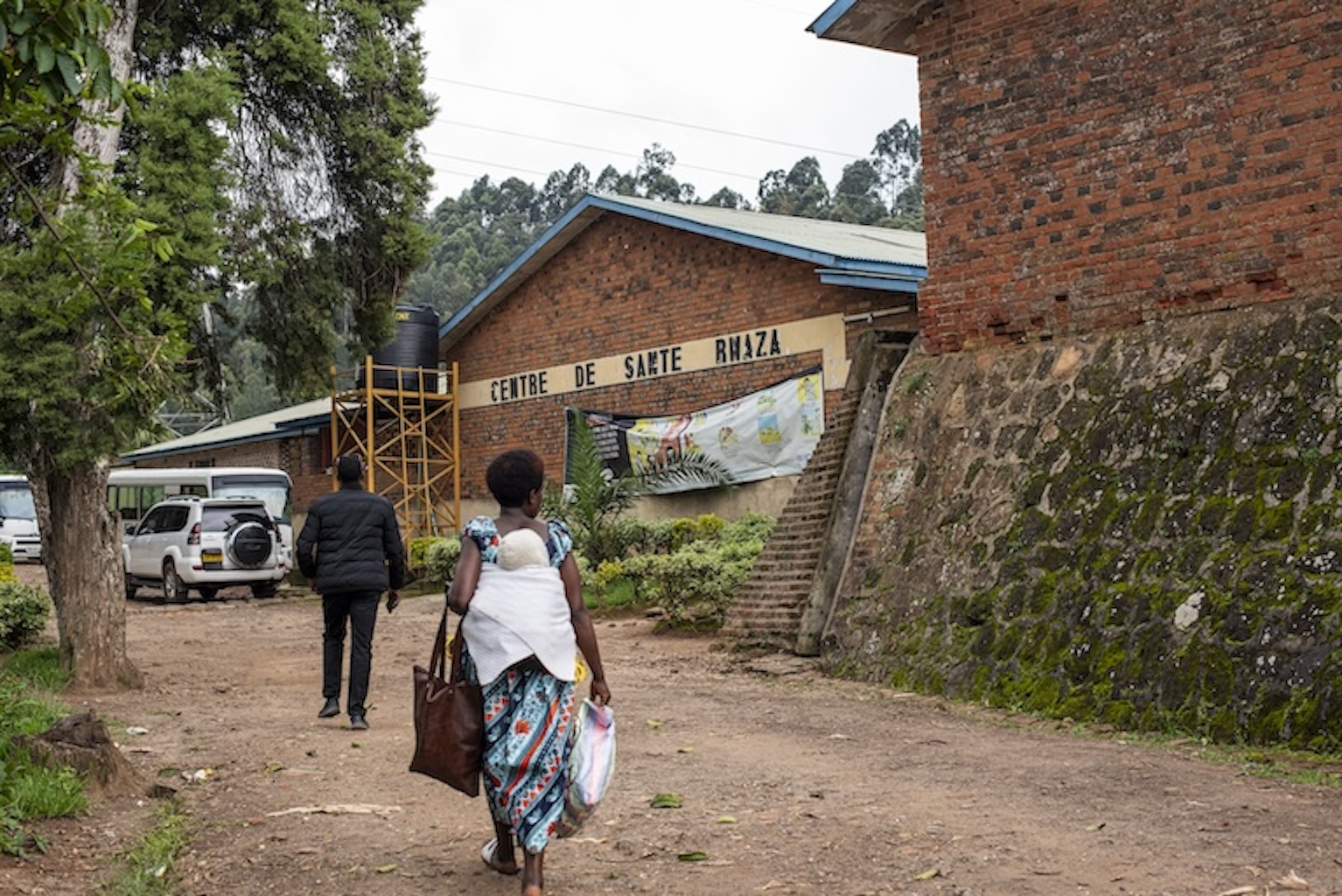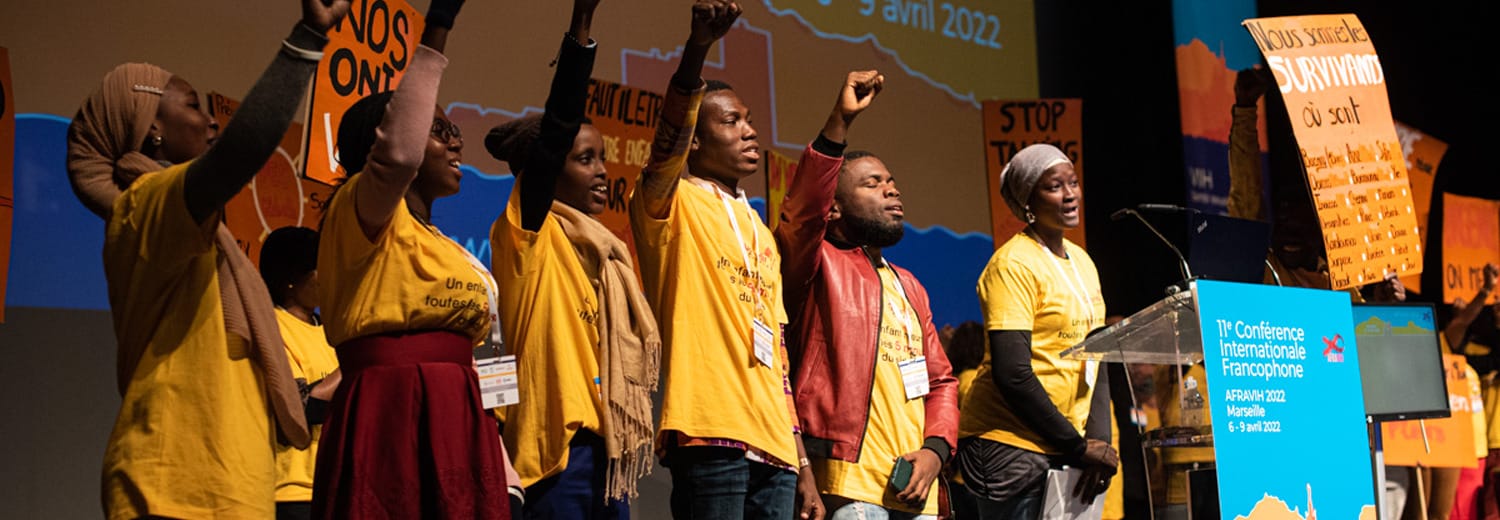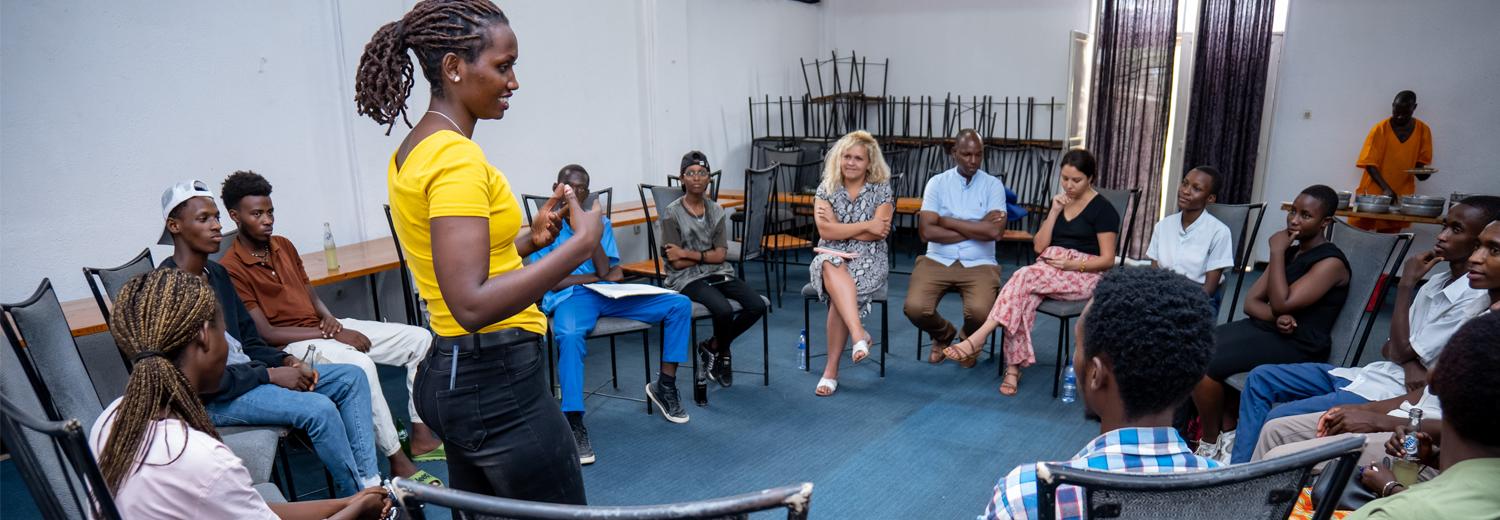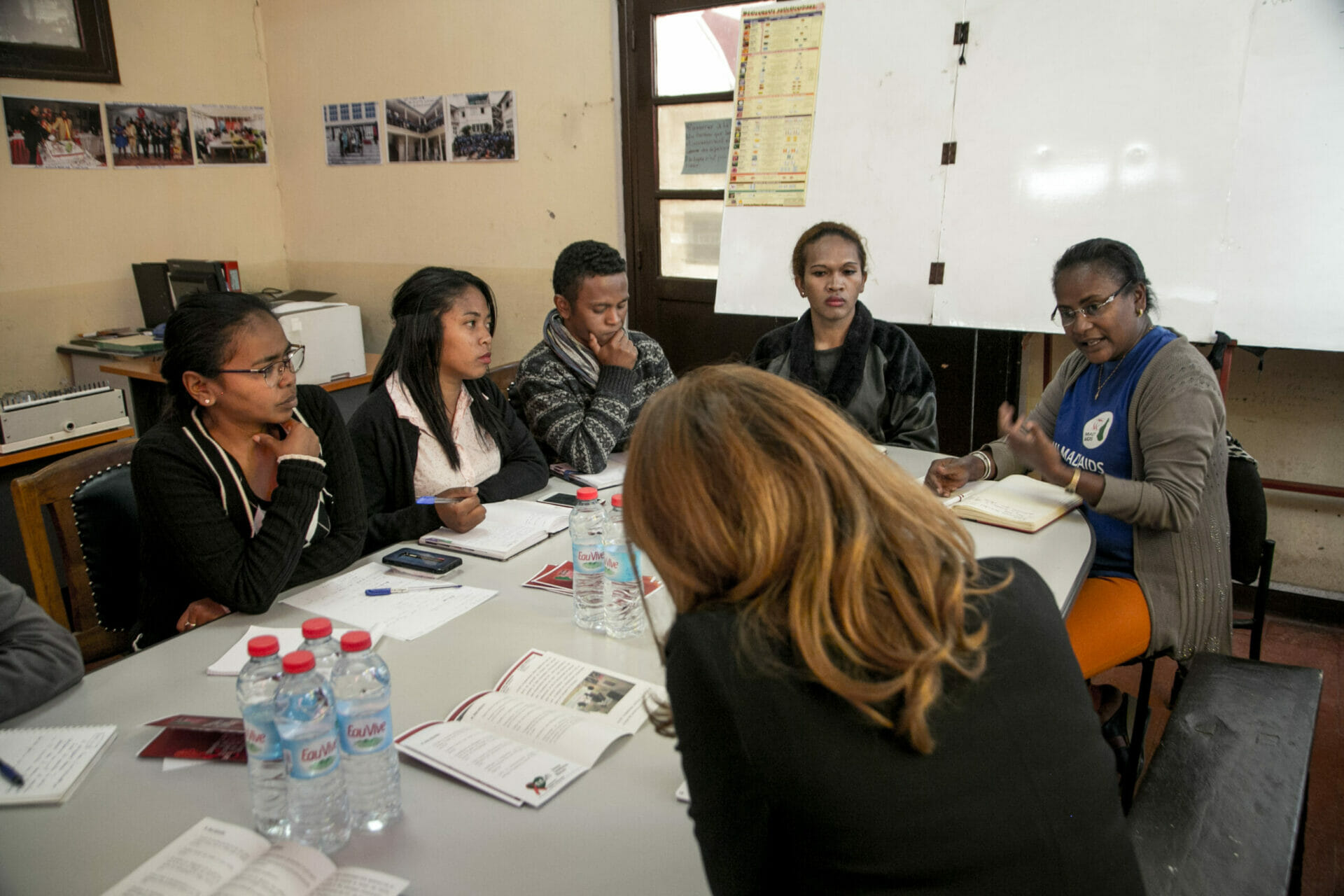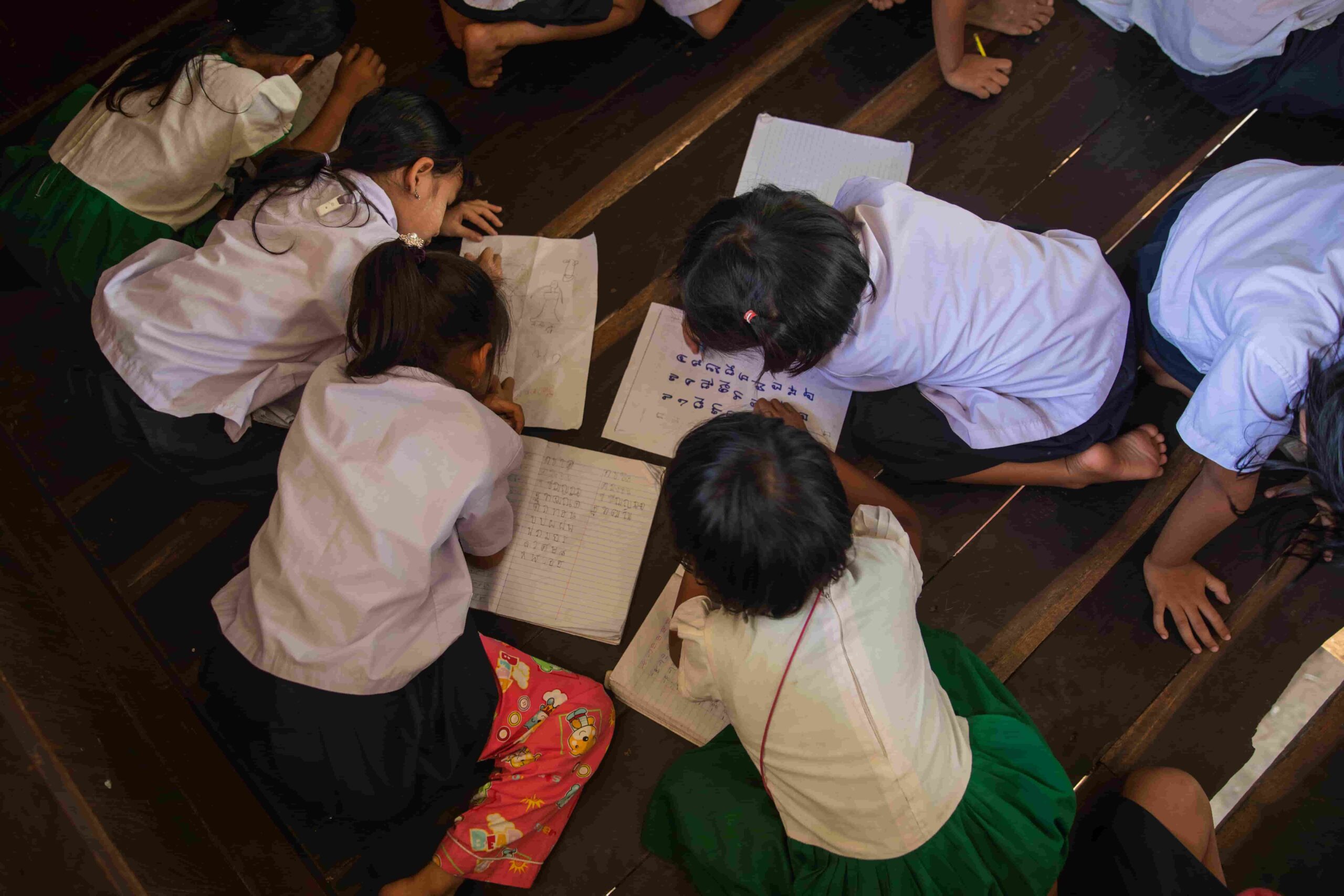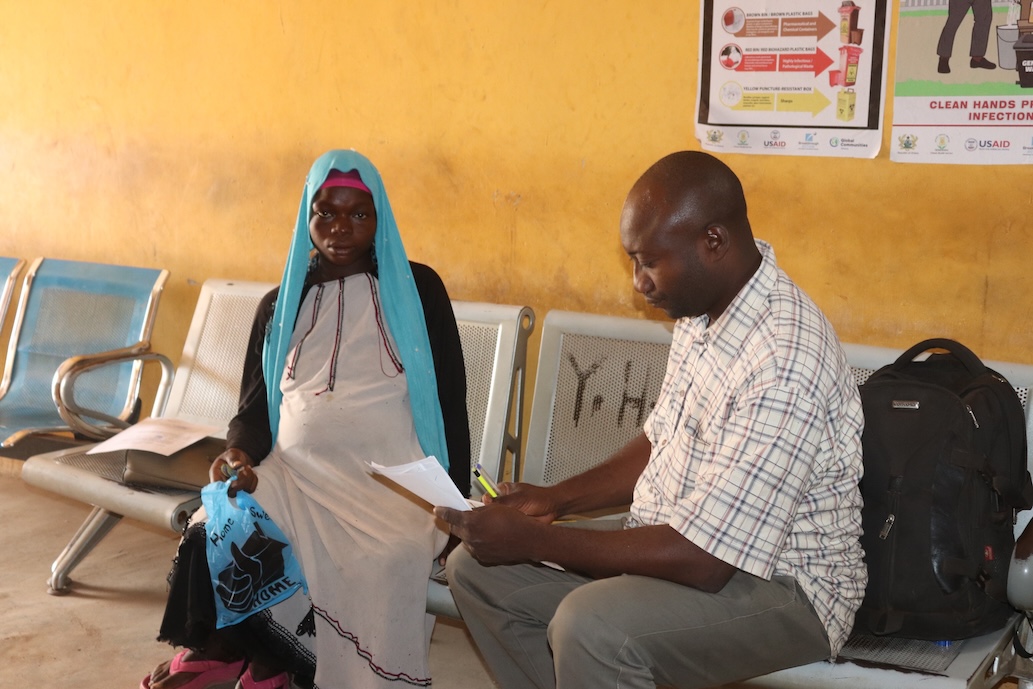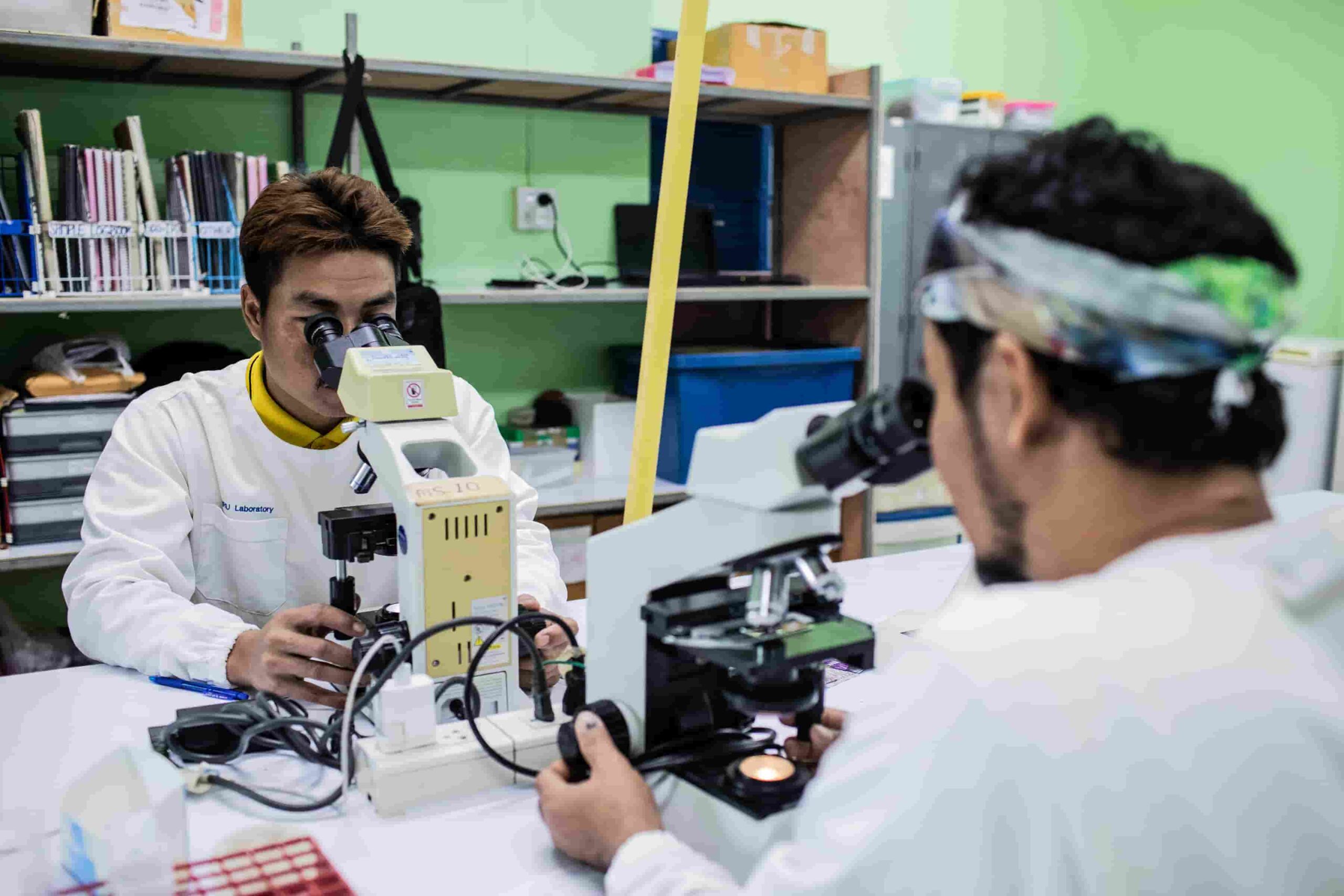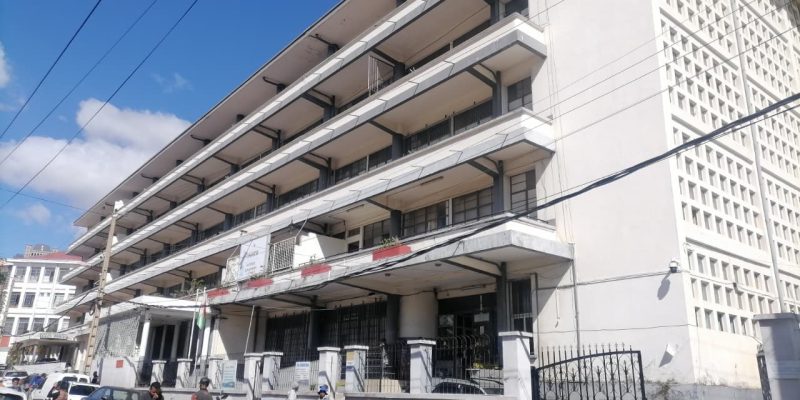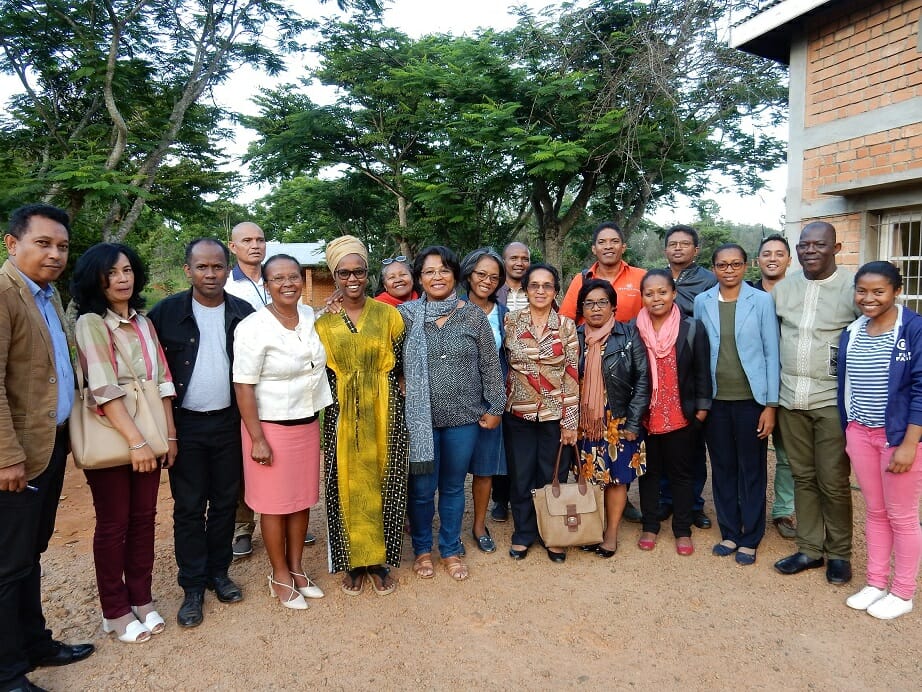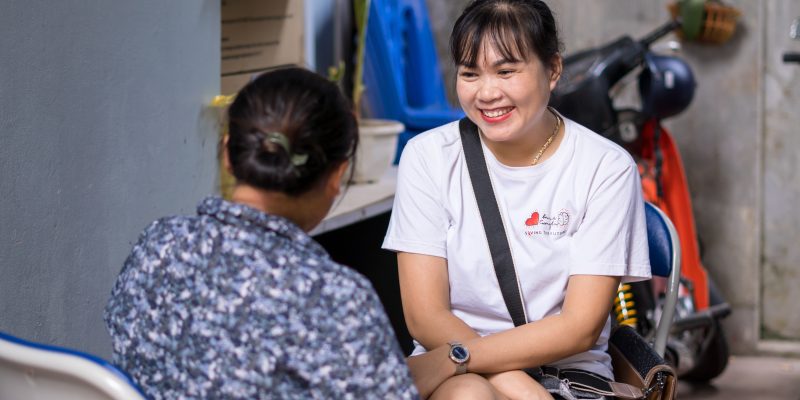Regional Meeting of L’Initiative’s partners in Southeast Asia
In Pullman Bangkok Hotel G, Bangkok
June 10 and 11, 2024
Context and objectives:
Launched in late 2011, L’Initiative is a French facility that complements the investment of the Global Fund to fight AIDS, Tuberculosis and Malaria. It aims to accelerate the fight against major pandemics and help countries improve access to high quality healthcare services. L’Initiative is implemented by Expertise France, the French international technical cooperation agency, and financed by the Ministry of Europe and Foreign Affairs, which oversees its activities.
L’Initiative’s recent evolution has demonstrated its catalytic effect through building the capacity of health professionals, including civil society and research organizations, improving institutional, political and social frameworks, supporting innovative approaches to respond to pandemics and strengthening systems for health.
It operates through complementary modalities: the Expertise Channel to provide technical assistance, the Projects Channel to strengthen field interventions and operational research, and finally L’Accélérateur to respond to neglected challenges, in particular human resources for health.
In Southeast Asia, the Global Fund’s investments have contributed to significant progress in reducing the incidence and mortality rates of HIV/AIDS, tuberculosis, and malaria. These investments have supported a wide range of programs, including prevention, treatment, and care services. Significant progress has been made in reducing the burden of these diseases, with notable achievements in terms of increased access to antiretroviral therapy and malaria prevention interventions. Investments have contributed as well to improvements in infrastructure, supply chain management, and human resources capacity. Strengthened health systems have not only facilitated the delivery of HIV, tuberculosis, and malaria services but have also enhanced overall health service delivery in the region .
L’Initiative has been contributing to this global effort, by funding projects in the Greater-Mekong sub-region for over 10 years now. This represents an investment of more than 50 million euros, for 37 projects covering the three diseases and strengthening health systems. These projects have been implemented by national programs, civil society organizations, universities or research organizations.
Despite these results, countries in the region continue to face challenges with controlling the spread of these infectious diseases, but also other emerging diseases. In particular, the Greater Mekong sub-region is vulnerable to drug-resistant strains of malaria and to the emergence of new diseases. Other key challenges remain, including the need to address stigma and discrimination, ensure sustainable financing, and strengthen health systems to effectively respond to future health emergencies.
This workshop is set up as a forum for dialogue on regional issues linked to the fight against pandemics, with a view to strengthening local health systems and linking them to the One Health approach.
The objectives for the two days together are 1/ to discuss the projects’ results and challenges and 2/ to create synergies between key stakeholders in the region in order to reflect on together and share the knowledge generated by the activities supported by L’Initiative in Southeast Asia. We will be welcoming project leaders, researchers and field workers supported by L’Initiative, as well as key expert guests.
Program overview:
Monday, June 10, 2024
- 7.45-8.15: Registration of participants
- 8.15-8.25: Welcome Remarks
H.E. Mr Jean-Claude Poimboeuf, Ambassador of France in Thailand
Dr. Sopon Iamsirithaworn, Inspector General, Health Region 2, Ministry of Public Health
- 8.25-8.35: Meeting introduction
Adeline Lautissier, South-East Asia & Eastern Europe Unit Manager, L’Initiative, Expertise France and Dr. Jane Deuve Scientific Development Coordinator, L’Initiative, Expertise France - 8.35-9.15: Key note speech – Priority public health issues in the Greater-Mekong Sub-region: vision and experience sharing
Dr. Weerawat Manosuthi, Department of Disease Control, Ministry of Public Health (Thailand) and Dr. Patrice Piola, MD PhD, expert (France)
Session 1 – “Is it really over?” Discussing successes and limitations of the fight against the diseases, while paving the path to more integrated approaches.
- 9.15-10.45:
How to best tackle tuberculosis in the region – why is the elephant still so big in the room?
Chair: Veronica Noseda, Operational Research Manager, L’Initiative, Expertise France
Low- and middle-income countries bear the brunt of tuberculosis infection and related deaths, accounting for over 80% of cases. The Southeast Asia region shoulders the highest TB burden globally, representing 46% of all new infections. Six countries in this region belong to the 13 where 75% of individuals with TB are unaccounted for. The Global Fund plays a significant role as a primary international contributor to TB efforts, supplying 76% of total international donor funding. Given the considerable TB burden, the Global Fund’s TB investments are predominantly directed towards the High Impact Southeast Asia regions. At a time when diagnostic and therapeutic advances offer hope for the future, the countries of the Greater Mekong region are facing new challenges, namely implementing strategies to prevent and treat latent tuberculosis, and adopting case-finding models that are both effective and affordable. The round-table discussion will give the opportunity to discuss how to leverage and intensify people-centred, holistic interventions, regional and multi-sectoral coordination.
- 9.15-9.30: The OPTICAM project: Lessons learned from the management of latent tuberculosis
Dr. Bunnet Dim, Deputy Head of clinical research group, Institut Pasteur, Cambodia - 9.30-9.45: The CapThai Project: Transforming tuberculosis control in Thailand through innovative strategic public health interventions
Tamara Tovar-Sanchez, Project Manager, IRD, France and Dr Kramolwat Phalin, Medical physician, advisory level of Tuberculosis, Division of disease control, Thailand - 9.45-10.00: ZTV Hope: Active versus passive case finding – making the case for mixed approaches
Ms Nga Nguyen, Associate HIV-TB Programs Director, Freundeskreis für Internationale Tuberkulosehilfe e.V. (FIT), Vietnam - 10:00-10.45: Round-table chaired by Veronica Noseda, with:
Dr Kramolwat Phalin, Medical physician, advisory level of Tuberculosis, Division of disease control, Thailand
Dr Patrick Duigan, Regional Migration Health Advisor, International Organization for Migration (IOM)
Dr Bunnet Dim, Deputy Head of clinical research group, Institut Pasteur, Cambodia
Ms Nga Nguyen, Associate HIV-TB Programs Director, Freundeskreis für Internationale Tuberkulosehilfe e.V. (FIT), Vietnam
Dr. Aung Myat Thu, Deputy Operations Director, Medical Action Myanmar (MAM) - 10.45-11.15: Coffee break
- 11.15–12.30:
Sustaining and integrating efforts towards malaria elimination – what are the next steps?
Chair: Dr Rattanaxay Phetsavanh, Director General of the Department of Communicable Diseases Control, Ministry of Health, Lao PDR
There has been undeniable progress in the fight against malaria in the subregion. The Global Fund has provided massive support and has launched a regional grant in 2014, the Regional Artemisinin-resistance Initiative (RAI). More than 600 million USD have already been disbursed to support Cambodia, Lao PDR, Myanmar, Thailand and Vietnam to contain the global health security threat malaria represents.
Efforts have been directed towards strengthening national surveillance, enhancing the availability of malaria services in remote border areas, and improving case management through supporting the recruitment and training of community health volunteers.
These important progresses should not overshadow the major challenges that remain, particularly given the current geopolitical context, limited resources and competing agendas.
The round-table discussion will give the opportunity to discuss the urgent need to improve preparedness and response to emerging diseases: How can efforts toward malaria elimination be sustained? What about the other two elephants in the room: P. vivax and P. knowlesi? What about integrated strategies for vector-borne diseases or within the same ecosystem?
- 11.15-11.30: Next steps? An overview of the sustainable strategies to achieve the malaria elimination goal.
Dr. Pascal Ringwald, Coordinator, Malaria Mekong Elimination, World Health Organization. - 11.30-11.45: A holistic approach to addressing malaria and other diseases within the same ecosystem.
Dr. Aung Pyae Phyo, Postdoctoral Research Fellow, Shoklo Malaria Research Unit, Mae Sot, Thailand - 11.45 – 12.30: Round-table chaired by Dr. Rattanaxay Phetsavanh, with:
Dr. Pascal Ringwald, Coordinator, Malaria Mekong Elimination, World Health Organization.
Dr. Aung Pyae Phyo, Postdoctoral Research Fellow, Shoklo Malaria Research Unit, Mae Sot, Thailand
Mr. Shreehari Acharya, Project Manager of the Regional Malaria CSO Platform, GMS at ALIGHT
Dr. Jean Popovici, Head of Malaria Research Unit, Institut Pasteur du Cambodge
12.30-13.45: Lunch
- 13.45-15.15:
HIV: Are new prevention and care tools considered silver bullets?
Chair: Dr. Emilie Mosnier, Deputy Coordinator for Clinical Research on Infectious Diseases, ANRS-MIE (Emerging Infectious Diseases), International Technical Expert, Expertise France, at the University of Health Sciences, Cambodia.
With the arrival of Tasp and PrEP since 2010, the “prevention revolution” has radically reshaped the fight against HIV. Treatments have evolved toward less side effects. Nevertheless, new challenges arise: PrEP remains difficult to implement in the region as key-populations are still highly stigmatized and sometimes reluctant to use the health system, and the most recent ARV show emergent resistances. The round-table discussion will give the opportunity to explore the urgent need for new approaches to reach out to and involve the most exposed communities and to offer them good quality prevention and care.
- 13.45-14.00: Implementing long-acting PrEP: How to get there?
Dr. Ngauv Bora, Deputy Director of NCHADS, Cambodia - 14.00- 14.15: New community-based strategies to deliver treatment and care
Mr Tuot Sovannary, Research Manager, KHANA, Cambodia - 14.15-14.30: Emergence of resistance to dolutegravir in the region: The need to strengthen surveillance
Dr. Phearavin Pheng, Head of Grant Management Office, University of Health and Sciences, Cambodia - 14.30-15.15: Round-table chaired by Dr. Emilie Mosnier, with:
Mr Tuot Sovannary, Research Manager, KHANA, Cambodia
Mrs. Rena Janamnuaysook, Program Manager for Implementation Science, Institute of HIV Research and Innovation, Thailand
Dr. Gonzague Jourdain, Researcher, Faculty of Associated Medical Sciences, Chiang Mai University
Dr. Ngauv Bora, Deputy Director of NCHADS, Cambodia
Dr. Phearavin Pheng, Head of Grant Management Office, University of Health and Sciences, Cambodia - 15.15-15.45: Coffee break
- 15.45-17.15:
Community-based approaches among drug users: a model of prevention and care
Chair: Pascal Tanguay, Expert
Built by and for drug users on the basis of their own experience, self-support programs and peer education approaches have gradually become real models of prevention and care, capable of adapting to new issues and new audiences, especially also among vulnerable groups.
The gradual withdrawal of the Global Fund from the region means that we also need to prepare the transition in the field of drugs and harm reduction in the best possible way and speak with one voice in favor of harm reduction. As could be observed, in regions where massive investment by public authorities has not followed the transition phase, overdoses have increased after years of decline. Support groups need to be able to enter fully into partnerships with the public sector, not only to ensure continuity of care, but also to offer an appropriate response to new drugs and new modes of consumption. The round-table discussion will give the opportunity to share good practices on new harm reduction tools that meet users’ needs and are based on scientific evidence.
- 15.45-16.00: The history of the DRIVE cohort: Adapting successful testing approach among diseases
Prof. Duong Thi Huong, Hai Phong University of Medicine and Pharmacy, Vietnam - 16.00-16.15: When changing needs drive changing approach: The example of SCDI
Dr. Oanh Khuat Thi Hai, Executive Director, Center for Supporting Community Development Initiatives, SCDI, Vietnam - 16.15-16.30: Operationnalizing the national policy on harm reduction in Thailand
Promboon Panitchpakdi, Executive Director, Raks Thai Foundation - 16.30-17.15: Round-table chaired by Mr Pascal Tanguay, with:
Prof. Duong Thi Huong, Hai Phong University of Medicine and Pharmacy, Vietnam
Dr. Oanh Khuat Thi Hai, Executive Director, Center for Supporting Community Development Initiatives, SCDI, Vietnam
Mr Promboon Panitchpakdi, Executive Director, Raks Thai Foundation
Dr. Nicolas Durier, General Director, Dreamlopments Social Enterprise and Foundation
17.30: Group picture
18.00: Cocktail
Tuesday, June 11, 2024
Session 2 – The Greater Mekong region in transition: the turns not to be missed
- 8.15-9.45:
Shifting to the « One Health » approach? How to build on the massive efforts and successes in the fight against major communicable diseases in this region?
Chair: Mrs RD Marte, Executive Director, APCASO, Thailand
The One Health approach, which acknowledges the interconnectedness of human, animal, and environmental health, holds significant importance in the Greater Mekong Region. This integrated approach enables a better understanding and response to complex health challenges, particularly those related to communicable diseases. By adopting a holistic perspective, health programs can more effectively prevent and control both emerging and recurrent epidemics – it is imperative to bridge the One Health approach with existing efforts to combat HIV/AIDS, tuberculosis, and malaria. The round-table discussion will give the opportunity to exchange on how an integrated approach can be developed to strengthen healthcare systems, enhance epidemiological surveillance, and promote community resilience against multiple health threats in the region by leveraging resources, expertise, and lessons learned from addressing these major diseases.
- 8.15-8.30: One Health: From a concept to a collective action – how do we do?
Dr. Soawapak Hinjoy, DVM, MSc, MPH, DrPH, Director of Office of International Cooperation, Department of Disease Control, Ministry of Public Health, Thailand - 8.30-8.45: Integrating environmental indicators with epidemiological surveillance systems: An operational and iterative approach
Dr. Florian Girond, Advisor, Communicable Disease Control Department, Ministry of Public Health, Cambodia, International Technical Expert, Expertise France - 8.45-9.00: Perspectives and roles of the civil society organizations and communities towards leveraging successes and integrating approaches.
Mr. Choub Sok Chamreun, Executive Director, KHANA, Cambodia - 9.00-9.45: Round-table chaired by RD Marte, with:
Dr. Soawapak Hinjoy, DVM, MSc, MPH, DrPH, Director of Office of International Cooperation, Department of Disease Control, Ministry of Public Health, Thailand
Dr. Florian Girond, Advisor, Communicable Disease Control Department, Ministry of Public Health, Cambodia, International Technical Expert, Expertise France
Mr. Choub Sok Chamreun, Executive Director, KHANA, Cambodia
Dr. André Furco, One Health Approach Technical Expert, World Organisation for Animal Health, International Technical Expert, Expertise France
Dr. Flavie Goutard, Senior epidemiologist, PREZODE focal point, CIRAD, French agricultural research and international cooperation organization - 9.45-10.15: Coffee break
- 10.15-11.15:
Health community workers: the centerpiece of a stronger and more integrated health system?
Chair: Dr. Faisal Mansoor, Head of Programme Unit, UNOPS, Myanmar
We all acknowledge the role of community health workers, whether it is to emphasize their significance in delivering primary healthcare services closest to communities or because they appear to be the linchpin and answer to many strategies in the fight against HIV/AIDS, tuberculosis, and malaria, as well as in preparedness and response to emerging diseases, including in animal and environmental health. Consequently, their responsibilities and service packages seem to be expanding over the years. On one hand, we must underscore their pivotal role, as seen again recently during the COVID crisis. On the other hand, we need to question their integration and recognition by and within healthcare systems, their status, remuneration or compensation schemes, training, and service package along with related gender issues. The round-table discussion will give the opportunity to modestly shed light on some of these challenges and to identify pathways for sustainable and integrated strategies.
- 10.15-10.30 How can malaria community workers be a centrepiece of a sustainable and integrated approach?
Prof. Frank Smithuis, Professor of Tropical Medicine, Oxford University, Medical Action Myanmar, Myanmar Oxford Clinical Research Unit (MOCRU), Myanmar - 10.30-10.45 Training community health workers: issues surrounding content definition, certification, and funding
Prof. Saphonn Vonthanak, Advisor, Ministry of Health, Rector of the University of Health Sciences (UHS), Cambodia - 10.45-11.15 Round-table chaired by Dr. Faisal Mansoor with:
Prof. Frank Smithuis, Professor of Tropical Medicine, Oxford University, Medical Action Myanmar, Myanmar Oxford Clinical Research Unit (MOCRU), Myanmar
Prof. Saphonn Vonthanak, Rector of the University of Health Science (UHS), Cambodia
Izaskun Gaviria, Senior Fund Portfolio Manager, The Global Fund, Geneva
Viengakhone Souriyo, Executive Director, Community Health Inclusion Association, Lao PDR - 11.15-12.30:
Sustainability & transition
Chair: Dr. Nittaya Phanuphak, Executive Director of the Institute of HIV Research and Innovation (IHRI), Thailand
The Global Fund is a key donor in the fight against the three diseases in the region. Some of these countries have already extensively committed to addressing the sustainability of their national HIV, tuberculosis, and malaria strategies and programs, regardless of their economic capacity or disease burden. Situations and challenges vary significantly from one country to another, with potential challenges to anticipate in their healthcare systems, especially in the prevention and control for vulnerable populations. This session aims to highlight certain initiatives and projects aimed at sustaining investments and programs.
- 11.15-11.30: Transitioning from donor to domestic funding: a focus on human resource management initiative for Vietnam’s HIV/AIDS Program
Cao Thi Hue Chi, Researcher, Hanoi University of Public Health, Vietnam - 11.30-11.45: The M-Fund: A low-cost, not-for-profit health access fund for migrants, stateless and marginalised border population
Dr Nyan Linn, Head of Programs, Dreamlopments Foundation - 11.45-12.00: Global trends in equitable HIV financing in the Greater Mekong
Véronique Collard, Regional Advisor, Equitable financing, UNAIDS - 12.00-12.30: Round-table chaired by Dr. Nittaya Phanuphak with:
Cao Thi Hue Chi, Researcher, Hanoi University of Public Health, Vietnam
Dr Nyan Linn, Head of Programs, Dreamlopments Foundation
Véronique Collard, Regional Advisor, Equitable financing, UNAIDS
Allan Nfamba, Fund Portfolio Manager, Grant Management, The Global Fund
Conclusion and take-away messages
Lunch

